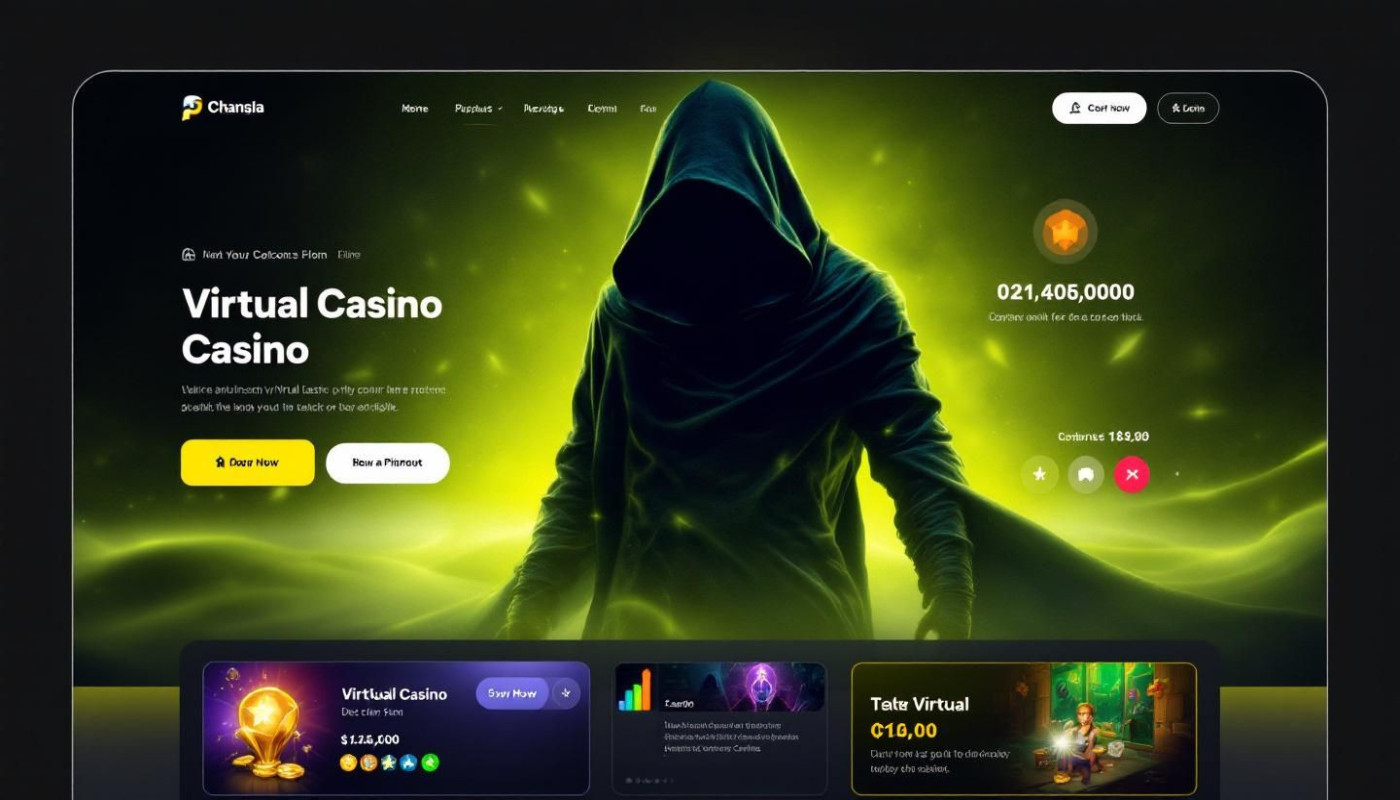Table of contents
In recent times, the landscape of online gambling has shifted with the rise of anonymous casino platforms. These digital venues promise an extra layer of privacy that attracts a diverse range of players. For anyone curious about the underlying advantages and pitfalls, exploring the risks and rewards of these anonymous sites is vital for making informed decisions about online gaming. Continue reading to uncover what sets these platforms apart and how they might affect your gaming experience.
Understanding anonymous casinos
Anonymous casino platforms are online gambling sites designed to protect player privacy by minimizing personal data collection and often forgoing the Know Your Customer (KYC) verification process found in traditional online casinos. Unlike standard platforms that require extensive personal identification and financial details, these privacy-focused sites utilize blockchain technology and cryptocurrency payments to facilitate secure, largely untraceable transactions. This innovation allows users to deposit, play, and withdraw their winnings without revealing sensitive information, making them highly attractive to individuals who prioritize discretion and confidentiality in their online gambling experiences.
The distinction between anonymous casino and conventional online casino environments extends beyond registration procedures. Regular casinos rely on traditional banking systems and strict regulatory compliance, which mandate identity checks and enforce KYC rules to prevent fraud and money laundering, often at the cost of user privacy. In contrast, anonymity-centric platforms leverage decentralized blockchain ledgers and digital currencies like Bitcoin or Ethereum, bypassing the need for centralized oversight and offering rapid, borderless transactions. As a result, cryptocurrency casino and blockchain integration are reshaping the online gambling industry, offering both increased privacy and a degree of security that appeals to a growing segment of tech-savvy players. This detailed explanation reflects the insights of a leading digital security expert.
Potential rewards for players
Anonymous casino platforms provide a distinct set of advantages for online gamblers, particularly those highly concerned about privacy protection and online player safety. One of the primary attractions lies in reduced personal data exposure; by eliminating or minimizing the need for KYC procedures, these no KYC casino operators allow users to avoid sharing sensitive identification details. This decrease in required documentation significantly lowers the risk of data breaches and identity theft. In addition, fast withdrawals are often a hallmark of these sites, since fewer verification steps mean funds can be processed and delivered to players in a fraction of the time compared to traditional online casinos. Enhanced privacy protection not only ensures users remain discreet but also empowers individuals in regions with restrictive gambling laws to access secure gambling options without fear of legal repercussions.
These platforms frequently prioritize advanced security features, such as two-factor authentication, to further safeguard user accounts while maintaining anonymity. The integration of two-factor authentication mitigates unauthorized access, making it a valued tool in the defense against cyber threats. By offering a platform where anonymity does not compromise security, anonymous casinos strike a balance that appeals to tech-savvy and privacy-minded players. In sum, the synergy of fast withdrawals, privacy protection, and robust safeguards like two-factor authentication positions anonymous casinos as a compelling choice for those seeking both secure gambling and online player safety.
Main risks involved
Engaging with anonymous casino platforms presents distinct gambling security risks that adult users should carefully consider. The lack of regulatory oversight is a notable issue; many such sites operate as an unlicensed casino, bypassing standard legal frameworks designed to protect players. This regulatory gap means users cannot rely on national authorities for assistance if disputes arise, as avenues for dispute resolution are extremely limited or nonexistent. The risk of online fraud also rises substantially in these environments, as the absence of comprehensive verification processes can attract operators with malicious intent and make it easier for scam risk to materialize.
While the prospect of skipping traditional identity checks might appeal to those concerned with privacy, this same feature exposes users to heightened danger. Without strict verification, unscrupulous individuals can exploit multiple accounts, manipulate outcomes, or engage in other fraudulent activities that are harder to track or report. Provably fair algorithms are often promoted as a solution to transparency concerns, but these systems are not always implemented honestly or may be difficult for the average player to audit. This complexity further complicates the task of distinguishing between genuinely secure operations and those simply masquerading as fair.
Users must weigh the benefits of anonymity against the potential consequences of engaging with platforms that may lack accountability and transparency. The cumulative impact of scam risk, regulatory issues, and inadequate consumer protections means any perceived convenience or privacy must be balanced with caution and due diligence. For those seeking a safe gambling experience, understanding these vulnerabilities is indispensable in making informed decisions about where and how to play.
How to identify safe platforms
Selecting a trusted anonymous casino involves a careful evaluation of several security and reliability factors to protect both your funds and personal information. Begin by confirming the presence of a reputable casino license displayed on the platform; licensing from authorities such as the Malta Gaming Authority or the UK Gambling Commission is generally a positive indicator of compliance with industry standards. Equally, browsing through independent player reviews can offer valuable insight into user experiences, highlighting any recurring issues related to delayed payouts, unfair practices, or unresolved complaints. Consideration of technical safeguards is also vital, with SSL encryption being a non-negotiable feature for protecting sensitive data during transactions.
To further assure the integrity of a secure platform, examine whether the casino undergoes regular fairness audits conducted by established third-party auditors such as eCOGRA or iTech Labs. These audits confirm that the games use provably fair algorithms and random number generators, giving players confidence in the legitimacy of outcomes. Additionally, scrutinize the casino’s software providers: reputable names in the iGaming industry typically supply games that are independently tested for fairness and transparency. Platforms that are open about their auditing process and software partnerships demonstrate a stronger commitment to player security and trust.
While researching, it is advisable to consult a cybersecurity analyst specializing in iGaming to further assess the risk profile of a particular casino. Such experts can help identify hidden vulnerabilities or past breaches that might not be evident from surface-level checks. For those seeking to explore platforms that do not require extensive personal information, no verification casinos offer a possible solution, although due diligence remains key. More information on these platforms can be found here: no verification casinos.
Future outlook for anonymous casinos
The future of online gambling is set to be shaped significantly by the rise of anonymous casino platforms. Blockchain casino innovation, especially through smart contracts, promises enhanced automation and trust, reducing the need for intermediaries and increasing efficiency in payouts and game fairness. Gambling trends indicate that more players are drawn to anonymous betting options, valuing privacy and the ability to control personal data. Yet, as these platforms scale, regulators are likely to introduce stricter frameworks to address anti-money laundering concerns and ensure responsible gaming. These potential regulatory changes could redefine operational standards for all online casinos.
A seasoned iGaming industry analyst notes that the ongoing tension between privacy vs security will remain central as this sector develops. While anonymous casinos offer a haven for those seeking discretion, operators must invest in robust security measures to protect users and maintain compliance with evolving laws. Technological advancements, such as decentralized identity verification and improved blockchain protocols, could further empower players while assuaging regulatory bodies. In this rapidly changing landscape, the continued evolution of anonymous platforms may well influence mainstream adoption and innovation throughout the online gambling ecosystem.
Similar articles

Exploring The Future Of Online Gaming And Betting Platforms

What To Look For In Online Casino Customer Support

Exploring The Evolution And Popularity Of Minesweeper-inspired Casino Games

Exploring Effective Techniques For Enhancing Relationships And Personal Downtime

How Provably Fair Technology Is Transforming Online Gaming

Mastering Timing In Online Rocket-Themed Betting Games For Maximum Wins

How To Develop Winning Strategies For Plinko Games

Exploring Traditional And Modern Japanese Fashion Trends Online

Strategies For Maximizing Winnings In Online Chicken-themed Casino Games

Exploring The Evolution And Benefits Of Digital Event Management Platforms

Essential Features To Look For When Choosing An Online Casino App

Strategies For Different Difficulty Levels In Road-crossing Games

Guide To Winning Strategies In Australian Online Casinos

Why User Reviews Are Critical In Selecting Online Games

Exploring The Benefits Of Low Deposit Casinos For Beginners

The Impact Of Customer Support On Online Gaming Experience

